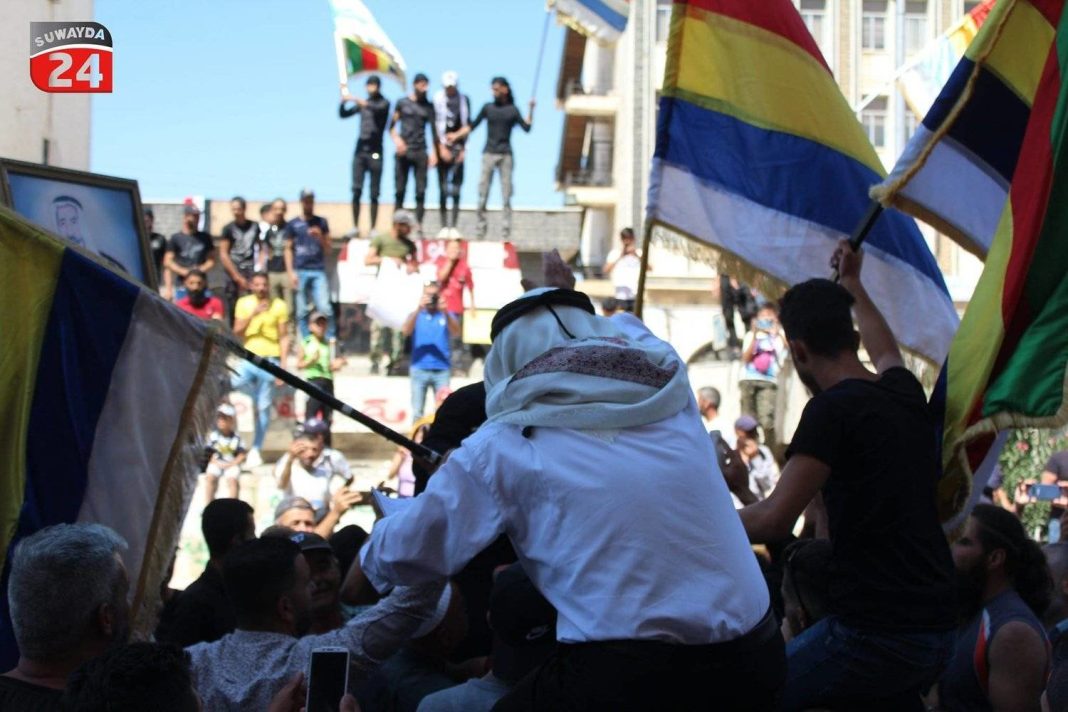“Bashar out! Syria free!” shouted a large crowd on Friday in the city of Sweida, according to the Reuters news agency.
“Syria is not a farm. We are not sheep,” read a poster.
Syria is in a deep economic crisis that has seen its currency plunge to a record low of 15,500 Syrian pounds to the dollar last month in a rapidly accelerating free fall. It had traded at 47 pounds to the dollar at the start of Syria’s war 12 years ago.
The protests were initially driven by surging inflation and the war-torn country’s worsening economy but have quickly shifted focus with marchers calling for the fall of al-Assad’s government.
Centred in the government-controlled province of Sweida, the heartland of Syria’s Druze, a religious minority that had largely stayed neutral in the conflict between al-Assad and the Syrian opposition, the protests are unusual.
Open criticism of the government had remained rare in government-controlled areas, but as the economic situation has grown worse, the discontent has gone public.
Friday’s turnout was large despite apparent divisions within the Druze leadership over the demonstrations. Some Druze sheikhs have criticised protesters’ calls for al-Assad to step down and say that any improvement to the socioeconomic situation must come through dialogue.
Dozens of protesters also gathered on Friday in the neighbouring province of Daraa, where the 2011 protests kicked off. Peaceful protests in 2011 were met by a violent response from the Syrian government, leading to the outbreak of a war that has continued to this day and led to hundreds of thousands of deaths.
The front lines have largely been quiet in recent years as the Syrian government, with the backing of Russia and Iran, pushed back militants into the northwest.
Residents of other government-held parts of Syria – where restrictions are tighter – have made more discrete gestures of protest to avoid detection by government forces.
In the coastal province of Tartus on Thursday, some residents held up small postcards reading, “Syria belongs to us, not to the [ruling] Ba’ath party,” according to photographs posted on activists’ social media pages.
A large billboard picturing al-Assad could be seen in the background.
